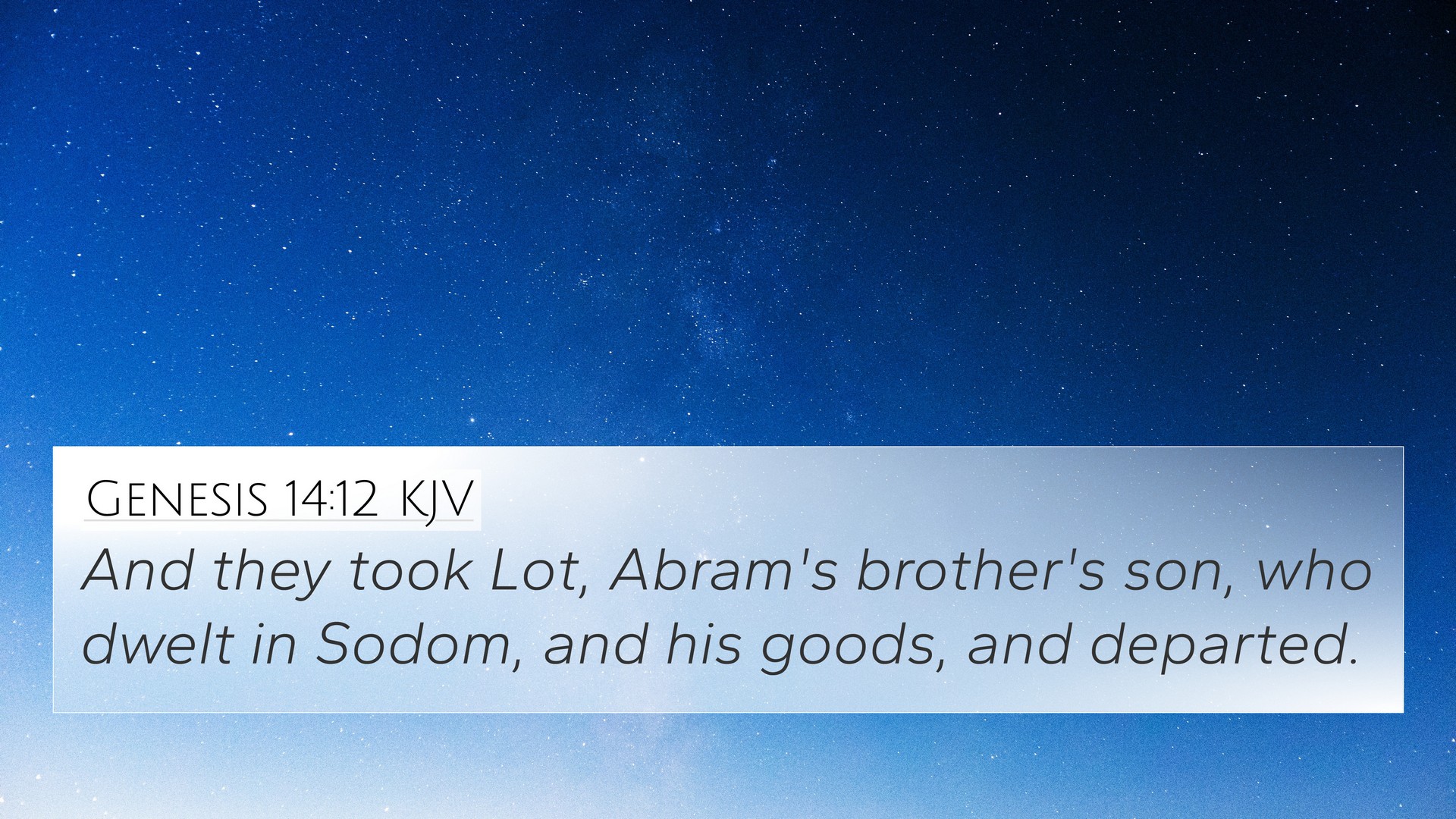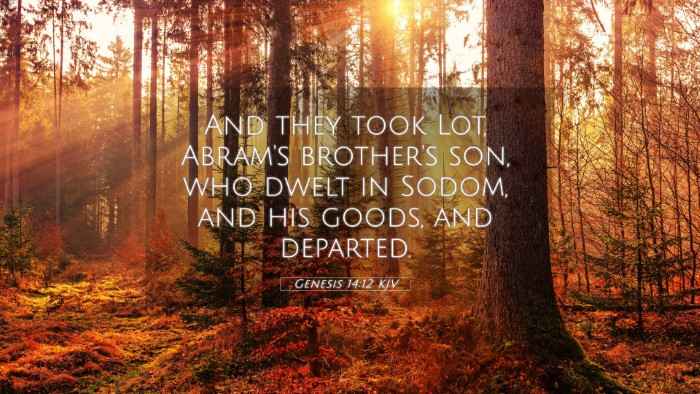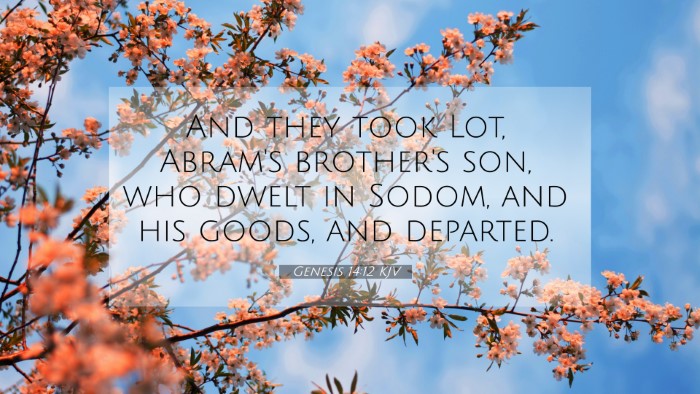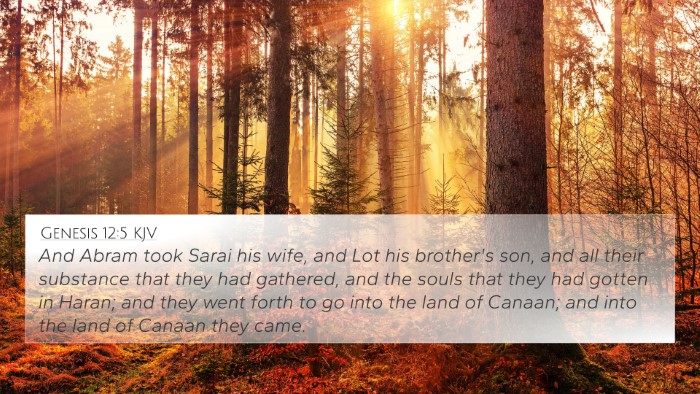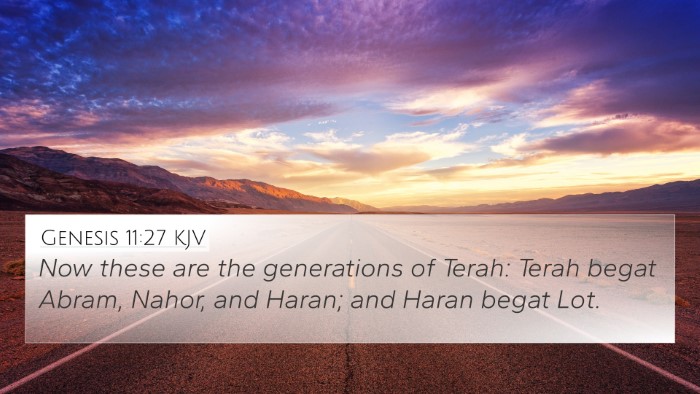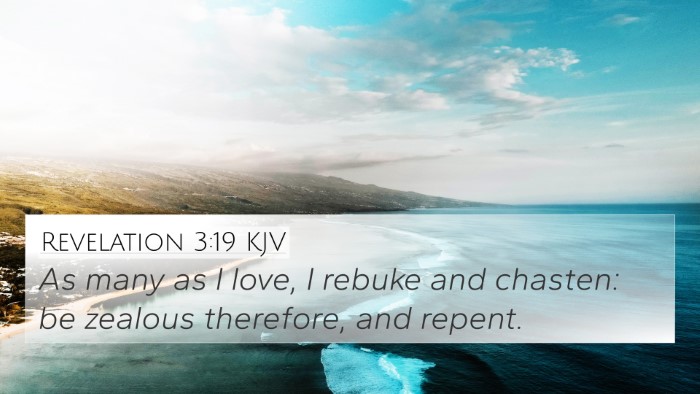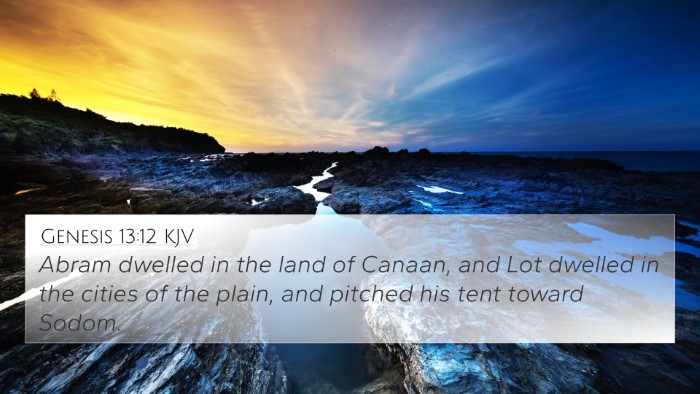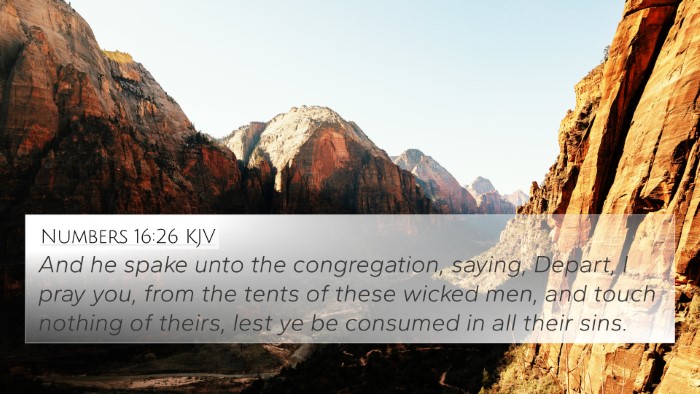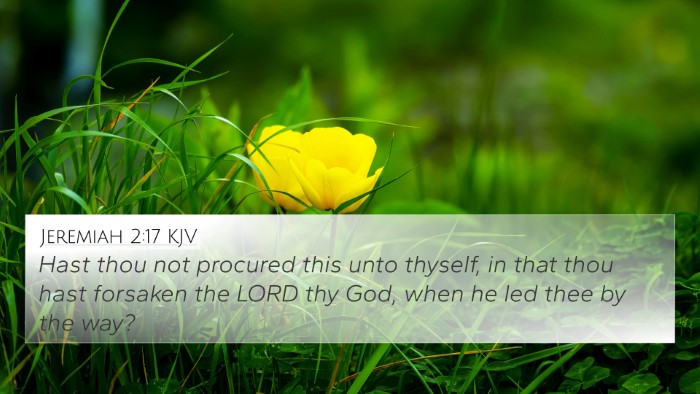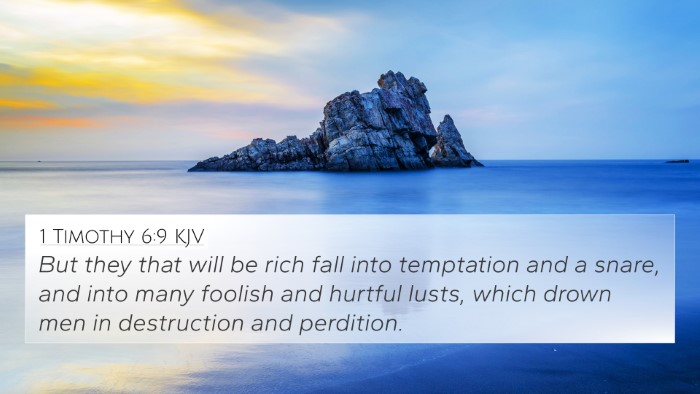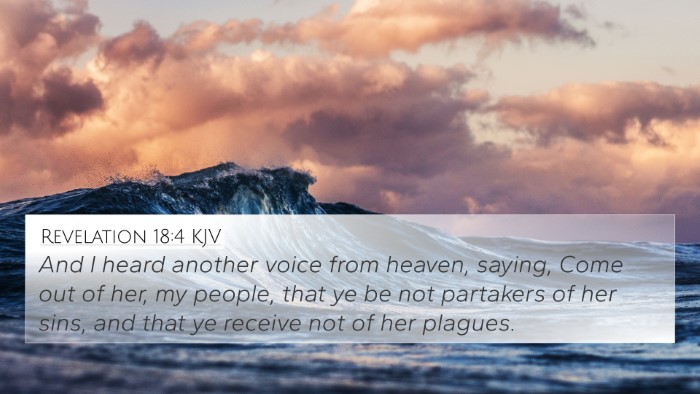Understanding Genesis 14:12
Genesis 14:12 states: "And they took Lot, Abram's brother's son, who dwelt in Sodom, and his goods, and departed." This verse occurs within a larger narrative concerning the capture of Lot during a conflict between regional kings.
Contextual Overview
This passage highlights the peril that Lot faced as a resident of Sodom, emphasizing the dangers present in his choices. Lot had chosen to settle in a city known for its wickedness, contrasting sharply with the more righteous lifestyle of his uncle, Abram.
Analytical Insights
- Matthew Henry's Commentary: Henry suggests that Lot’s captivity symbolizes the vulnerabilities of those who dwell in worldly temptations. His good fortune, protected by his association with Abram, is suddenly reversed. This situation serves as both a warning and a lesson about the consequences of choosing to reside in morally compromised environments.
- Albert Barnes' Notes: Barnes illustrates that Lot’s removal captures the essence of spiritual peril. He notes how the violence of the city ultimately causes Lot to lose everything. Yet, from a broader perspective, this sets up the subsequent rescue by Abram, displaying God's providence and Abram's loyalty as a protector.
- Adam Clarke's Commentary: Clarke highlights the importance of Lot’s possessions as symbolic of the materialistic desires that can ensnare individuals. His relocation to Sodom is presented as a pursuit of prosperity, underlining how spiritual compromise often accompanies worldly gain.
Bible Cross-References
Genesis 14:12 connects with several significant passages throughout the Bible that provide deeper insights:
- Genesis 19:1-29: This passage recounts Lot’s rescue from Sodom and the subsequent destruction of the city, reinforcing the consequences of sinful living.
- 2 Peter 2:7-8: Peter references Lot as a righteous individual in a corrupt city, highlighting the emotional turmoil he faced due to the wickedness around him.
- Hebrews 11:8-10: These verses discuss Abram’s faith in moving to Canaan and can be seen in parallel to Lot’s misguided geographical choices.
- Proverbs 13:20: “He who walks with wise men will be wise, But the companion of fools will suffer harm,” which reflects the wisdom of choosing friendships and environments wisely.
- James 4:4: This verse presents the concept of friendship with the world being enmity with God, paralleling Lot’s alignment with Sodom.
- Genesis 13:10-11: Lot's choice to settle in Sodom after being drawn to its abundance is the original decision setting the stage for Genesis 14:12.
- Genesis 4:10-11: The theme of sin's consequences can be traced back to the initial stories of the burden of sin within families leading to destruction.
Thematic Connections and Lessons
This verse not only narrates a historical event but also serves as a reminder of the importance of our choices and the environments we inhabit. The cross-references reinforce themes of:
- Impact of sin on families and relationships.
- The role of divine intervention in worldly conflicts.
- The necessity of wise decision-making informed by faith rather than material gain.
Conclusion
In summary, Genesis 14:12 serves as an important reflection on the peril of living in sin and the necessity of divine protection. By analyzing this verse in conjunction with related scriptural references, we gain a comprehensive understanding of the spiritual lessons available in the text. It also encourages believers to consider their locations, associations, and the spiritual implications of their choices.
Further Study
For readers wishing to explore more about cross-referencing biblical texts, utilizing tools like a Bible concordance or Bible cross-reference guide can greatly enhance your study. Understanding inter-Biblical dialogue and thematic connections provides deeper insights into the Scripture.
- Consider how to identify connections between the Old and New Testaments.
- Delve into the comparative study of themes across different parts of the Bible.
- Explore how many biblical figures interact with the idea of conflict and righteousness.
